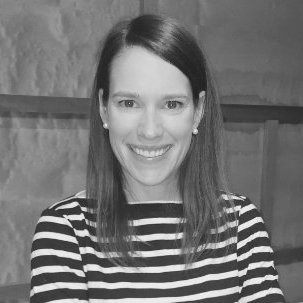3 Regrets of Rejected MBA Applicants (and How to Avoid Them) | 2025 Edition

As another MBA admissions season wraps up, we’ve been connecting with applicants who didn’t get the news they were hoping for. These rejected applicants came to us for answers, hoping to understand what held their applications back and how they can improve their chances if they decide to reapply.
Our feedback varies just as much as the applicants do. While every situation is different, we’ve noticed a few consistent themes. These aren’t minor oversights. They’re the kinds of regrets that usually start with “I wish I had…” and end with a clearer understanding of what the process really demands. If you’re applying in the upcoming cycle, their hindsight can be your advantage.
Here are the three regrets we hear most often and what you can do to avoid them.
Waiting Too Long to Get Started
Underestimating how long it takes to put together a strong MBA application is one of the most common missteps we see. When you wait too long to begin, you compress the timeline and sacrifice the space you need for reflection, revision, and thoughtful storytelling.
Between clarifying your goals, writing and refining essays, coordinating with recommenders, and researching programs in depth, the process is far more involved than most applicants expect. And once deadlines start looming, there’s little room to course-correct without compromising quality.
If you’re applying this fall, now (mid-May) is the time to get started. Essay questions will be released soon, and the goal is to have your foundation in place beforehand so you can focus fully on writing once they’re live. That means reflecting on your personal and professional journey, clarifying your post-MBA goals, finalizing your school list, and identifying any gaps in your story.
When you give yourself that kind of runway, you gain more than time. You gain clarity, confidence, and control over the story you’re telling.
If need additional guidance as you plan your application approach, we’d be happy to help.
Leaving Key Questions Unanswered
Leaving parts of your story unexplained, whether it is a low GPA, a gap in employment, or a career shift, can unintentionally raise red flags. Without context, these elements stand out for the wrong reasons, leaving the admissions committee wondering what they are missing.
According to Kristen Lindeman, Vantage Point Senior Consultant and former admissions director at MIT Sloan, the admissions committee can’t read between the lines, and they aren’t in a position to give you the benefit of the doubt. If your application leaves them asking “why,” and you don’t give them an answer, they are left to make assumptions that may not work in your favor.
Being intentional about what you share and how you share it shows maturity and self-awareness. It tells the admissions committee that you understand your own story and are not afraid to address the tough parts. That kind of clarity can make a lasting impression and help shift the focus back to your strengths.
Overlooking the Small Moments That Matter
Focusing only on high-level accomplishments or resume highlights can make an application feel polished but not personal. Without depth and reflection, essays often miss the chance to show who you are beyond your achievements.
The most meaningful insights often come from smaller moments. Like the late night in the office when a conversation with your manager helped you better understand their leadership style. Or the time you noticed a teammate falling behind on a deliverable and, instead of getting frustrated, you offered to help. These are the stories that show how you lead, collaborate, and grow.
Use your essays to reflect, not just report. Instead of listing responsibilities or outcomes, focus on the experiences that shaped your perspective and influenced how you show up for others. What did you learn? What changed for you? That is the kind of insight that helps the admissions committee understand who you will be in their community.
Final Thoughts
If you’re applying in the upcoming cycle, now is the time to lay the groundwork for a successful application. These are the regrets we hear most often from those who fell short. But they don’t have to be yours.
With the right strategy, structure, and support, you can approach the process with clarity and confidence.
Whether you’re refining your goals, shaping your story, or preparing for the interview, we’re here to help. Our team of experts knows what it takes to stand out, and we’d love to support you every step of the way.
Request a free initial consultation to speak with someone from our team. And don’t forget to sign up for our newsletter for timely insights and strategies that will keep you one step ahead.




